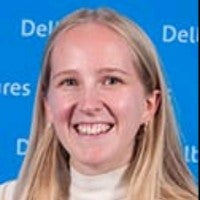Water managers need to make numerous decisions on a daily, hourly or even on a real-time basis. These decisions often include how to operate hydraulic structures such that regulatory and operational targets/constraints are satisfied given current and forecasted conditions. Optimisation modules can support decisions makers by utilising available forecasts, and providing optimal advice on operations such that targets and goals are best met. By optimising over a forecasted time horizon, advice is generated which anticipate future events. Applying such approaches with a rolling time horizon allow advice to be updated given changing external conditions.
This talk focuses on the explainability of an optimal advice: determining/communicating which factors influence the solution most such that users can build trust with the advice. For instance, the solution could be driven by flood safety, energy prices, or a mixture of these. Ailbhe will also discuss the use of goal programming to prioritise hazard prevention over other objectives, as well as optimising under uncertainty, including weather uncertainty. After the lecture, a designated time is set aside for questions and discussion.
The lunch seminar will take place in Forum 3 (main building, VU Amsterdam). You don't need to register, it's a free open-door event! Lunch will be provided upon arrival. For questions, please contact Marleen de Ruiter.
